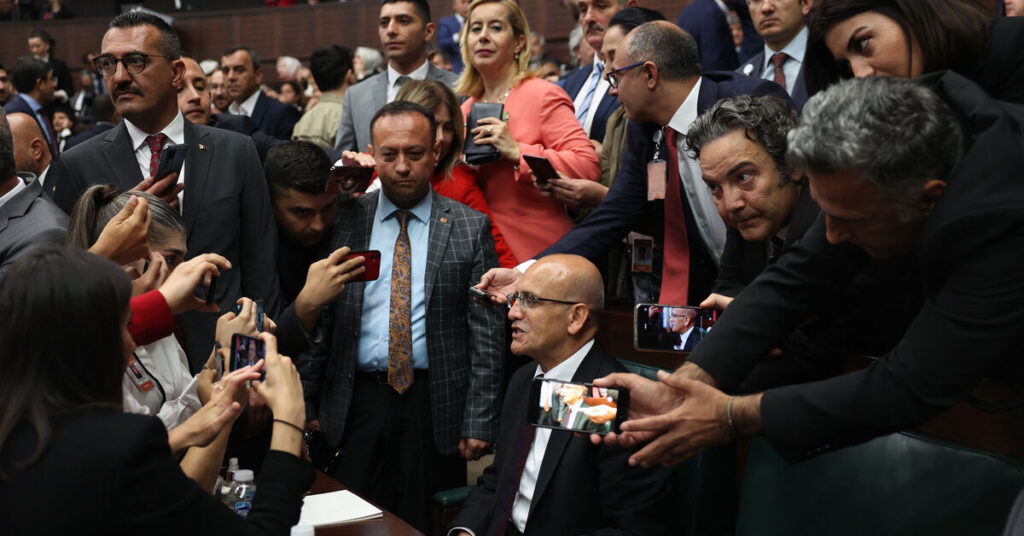A variety of factors helped Turkey ease its foreign-currency woes over the summer, but the problems risk resurfacing in the coming months as the government balks at unpopular measures ahead of local elections in the spring.
The decline in uncertainty following presidential and parliamentary elections in May created conditions for foreign assets held abroad or “hidden under the pillow” to flow into the official economy. This confidence was further boosted when Mehmet Simsek, an economist well-respected among international investors, took the helm of the economy in June. These inflows, recorded as “net errors and omissions” in the balance of payments, amounted to about $16 billion in the four months from June to September, according to central bank data.
During the same period, foreign investors poured about $5 billion into Turkish stocks and government bonds, while inflows in the form of bank deposits and loans totaled about $9.5 billion. The weakest area was foreign direct investment: real estate sales brought in $930 million, but actual direct investment saw outflows of about $630 million.
Overall, foreign inflows in the first four months under Simsek’s economic policy leadership reached nearly $15 billion, a figure that rose to about $31 billion when “net errors and omissions,” or inflows from unknown sources, were included. This figure easily covered the current account deficit of $3.4 billion for the June-September period and also led to a $27 billion increase in the country’s foreign exchange reserves.


